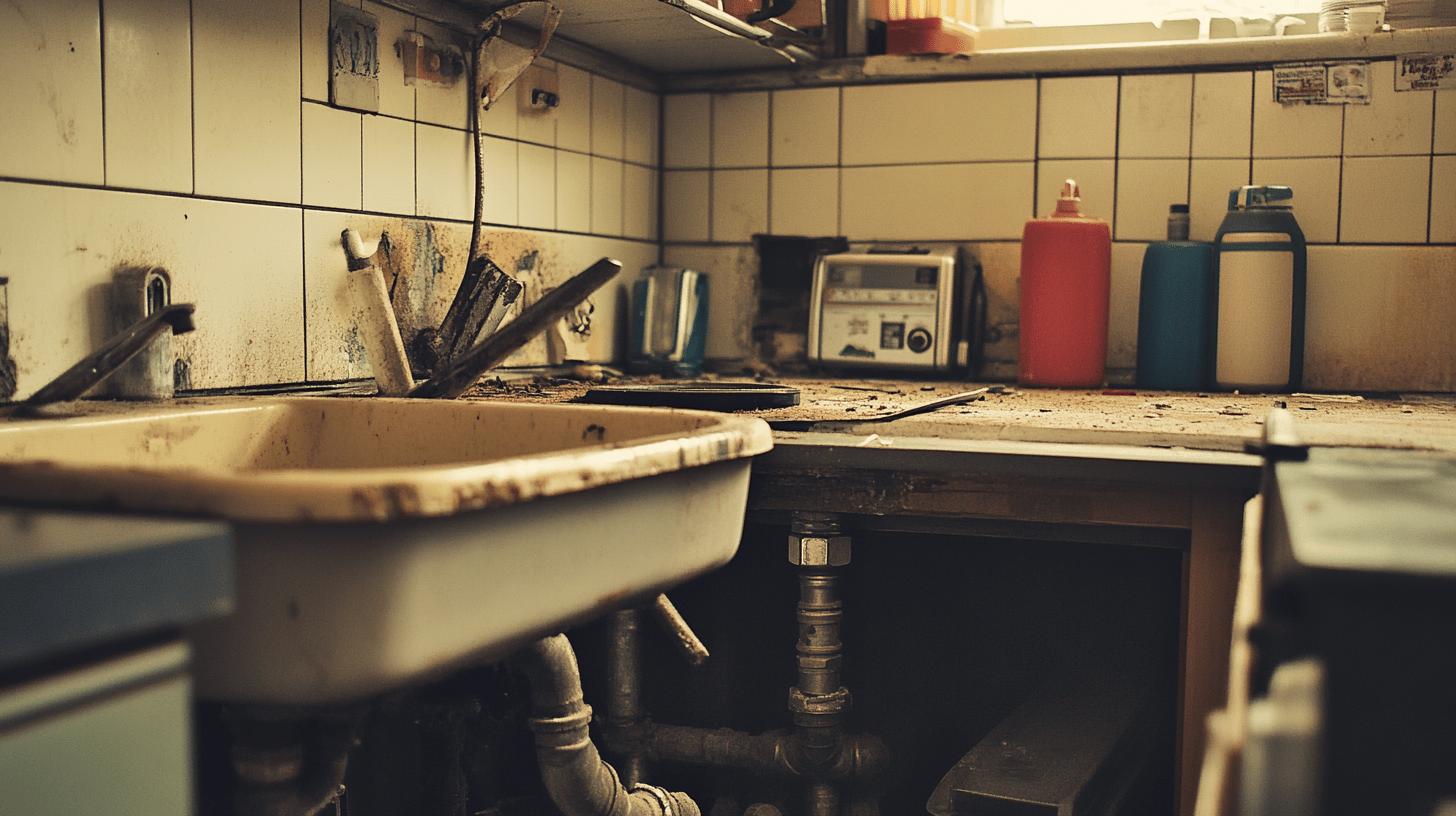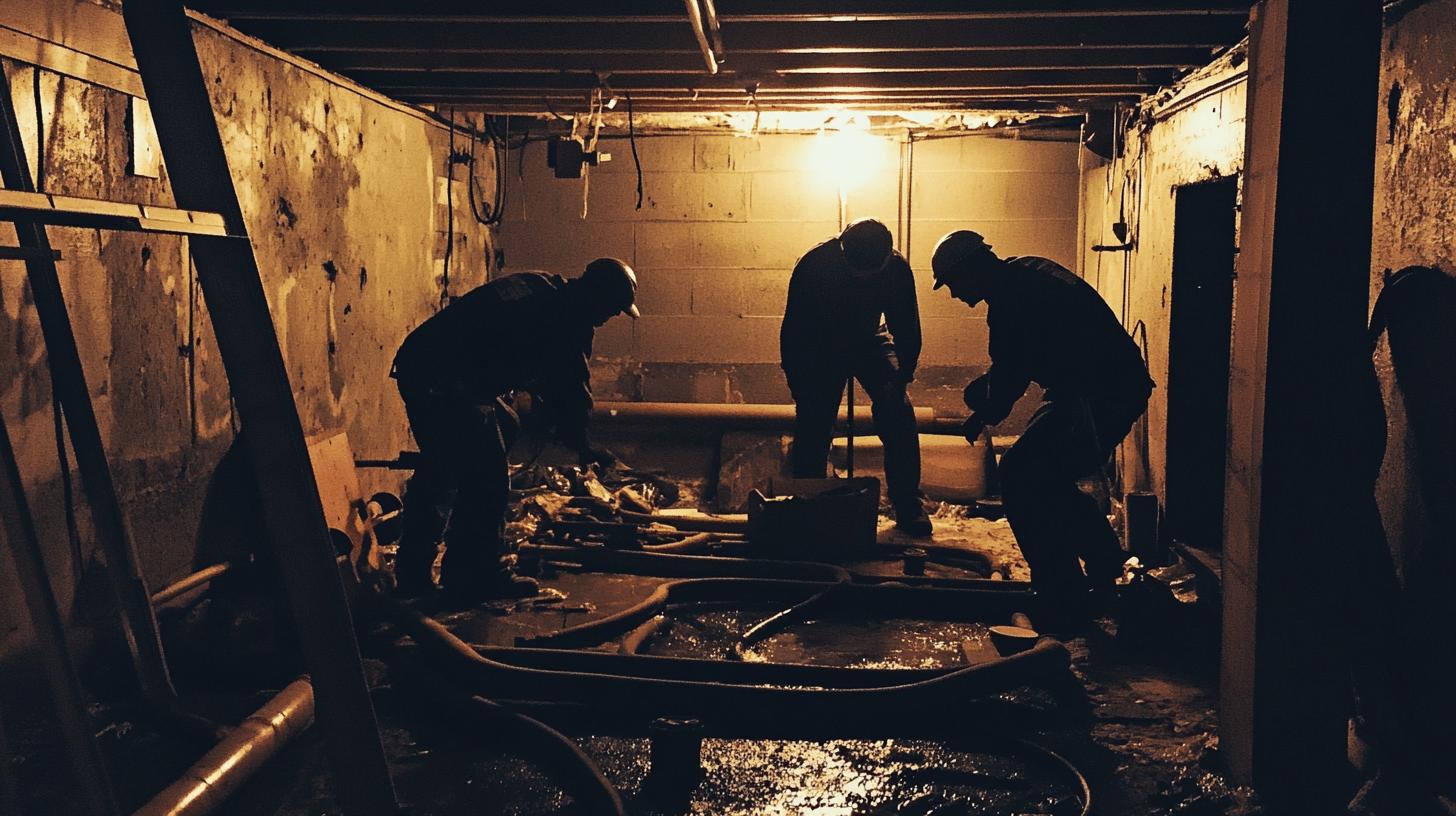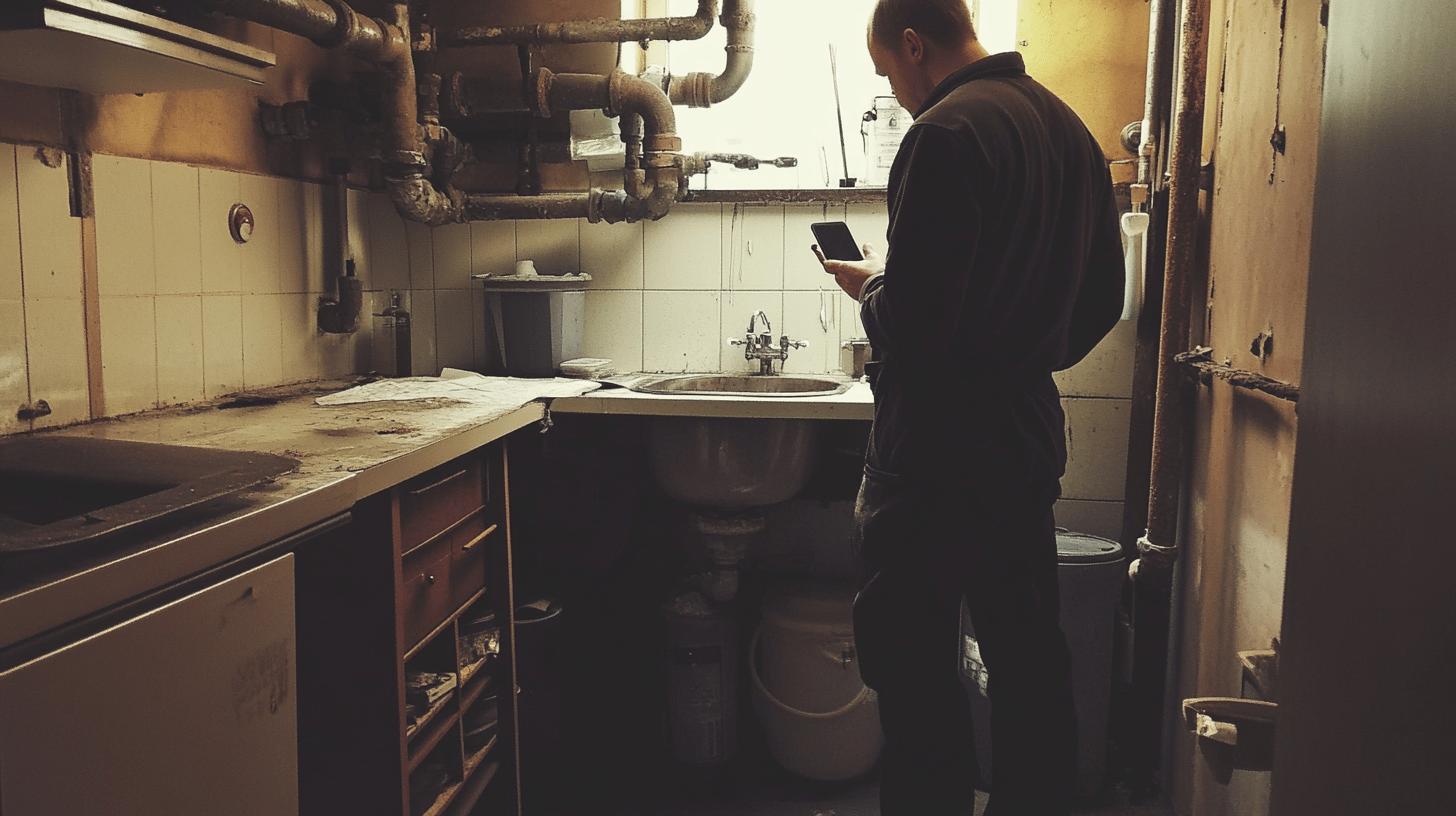TL;DR:
- Replacement Timeframe: 2-3 days for small homes; 1-2 weeks for larger, complex homes.
- Factors Influencing Duration: House size, pipe material (PEX installs faster than copper), plumbing complexity, accessibility, and the number of bathrooms.
- License: Hire licensed plumbers for accurate estimates and code compliance.
- Preparation Steps: Clear areas, protect items from dust, organize permits, and plan for water outages.
- Average Cost: $8,250 for repiping; $1,500 to $15,000 range.
- Copper: $8,000-$10,000
- PEX: $4,000-$6,000
- Galvanized: Varies and less common
- Value Impact: New plumbing can enhance property value.
Thinking about replacing the pipes in your house? It might seem simple, but have you thought about how long it really takes? Whether you’re just upgrading or doing a full repipe, knowing the timeline can help you get ready. For a small house, the job might wrap up in just a few days, but if you’ve got a bigger place with a complex system, it could take one to two weeks. This blog post breaks down the main things that affect how long the project will take, like your house size and the type of pipes you’re using, so you can plan your repiping project better.
Average Timeframes for Replacing Pipes in a House
How long does it take to replace pipes in a house? It usually takes anywhere from a few days to a couple of weeks. For smaller homes with straightforward plumbing, the job can be done in about 2 to 3 days since it’s easier to access everything. But for larger homes or ones with complicated plumbing, it might take 1 to 2 weeks. The type of pipe you choose also plays a role; for instance, PEX is quicker to install than copper, which requires more work.
Factors affecting the timeline include:
- House size: Larger homes need more time due to longer pipe runs.
- Pipe material: PEX tends to install faster than copper.
- Plumbing complexity: Complicated systems are slower to work on.
- Pipe accessibility: Easy access shortens replacement time.
- Multiple bathrooms: More bathrooms add work and time.
Knowing these factors helps homeowners get ready for the project. By understanding what’s involved, you can set realistic expectations and make sure everyone is prepared for how big the job will be and how long it will take.
Factors Influencing the Duration of Pipe Replacement

What affects how long it takes to replace pipes? One big factor is how easy it is to access the pipes. If they’re easy to get to, like in basements, the job gets done faster than if they’re in tricky spots. If the pipe replacement is part of a bigger renovation, the timeline could stretch out to match other projects. The age and condition of the old pipes also play a role; older pipes need more careful handling.
How does the pipe material come into play? The type of material makes a huge difference. PEX pipes can be replaced quickly because they’re flexible and need fewer connections. In contrast, copper pipes take longer since they require more precise work, like soldering. So, the material you choose affects how fast and complicated the installation will be.
| Factor | Impact on Duration |
|——————–|—————————————————–|
| Accessibility | Easy access saves time, while limited access extends it. |
| Renovation Overlap | Coordination with other projects can extend timelines. |
| Pipe Material | PEX installs quicker than copper. |
Having multiple bathrooms often means it’ll take longer to replace the pipes. That’s because there are more fixtures and connections to deal with. Complex installations can also create challenges, making the project take even longer. Understanding these factors helps homeowners get a better idea of the timeline and prepare for the work ahead.
The Process of Replacing Pipes
Replacing pipes begins with a consultation with a professional plumber. They’ll assess your needs and help you get the necessary permits. This step is important to make sure everything follows local codes and sets you up for a smooth replacement. The plumber will evaluate your current setup, talk about new materials, and provide you with a timeline for the project.
- Consultation and Assessment: Hire a professional to evaluate your plumbing.
- Securing Permits: Get required permits to follow local laws.
- Home Preparation: Clear spaces and move furniture to access plumbing areas.
- Cutting into Drywall: Access pipes by cutting small wall holes, patched later.
- Installing New Pipes: Replace old pipes with new, ensuring proper connections.
- Final Inspections: Check and test the new system for function.
During installation, plumbers will cut into the drywall to replace old pipes with new ones, like PEX or copper. They pay close attention to detail to ensure all connections are secure and leak-free. After the installation, they conduct a thorough inspection, which includes pressure testing and flushing the system to make sure everything works properly. This step is crucial for ensuring your plumbing is reliable.
Hiring professional plumbers brings valuable expertise that reduces mistakes and avoids costly repairs. Their knowledge and experience guarantee that your plumbing system will be durable and perform well in the long run. Trusting licensed professionals gives you peace of mind, knowing your plumbing is in good hands.
Hiring Professional Plumbers for Pipe Replacement

Why should you hire professional plumbers for pipe replacement? They provide accurate estimates tailored to your specific needs, helping you plan the project properly. They also handle all the complex permits and inspections, ensuring everything meets local codes. Plus, plumbers can advise you on materials and suggest water-saving solutions to boost plumbing efficiency. Their expertise minimizes costly mistakes, giving you peace of mind that the job is done right.
How can you find reliable plumbers? Start by asking friends, family, or neighbors for recommendations. Checking online reviews can give you a sense of customer satisfaction. Make sure any potential contractors are licensed and insured in your area. This careful approach helps you pick a reliable contractor who can manage the project efficiently.
Why is it important to compare quotes for plumbing services? Comparing quotes helps ensure you’re getting the best value and prevents you from overspending. By getting estimates from multiple contractors, you can assess the services offered and their costs. This allows you to see if a quote is fair or if it includes unnecessary expenses. Comparing quotes can also help in negotiations, which might lead to better pricing or added value. Overall, this process ensures you receive quality service at a reasonable price.
Preparing Your Home for Pipe Replacement
Get your home ready by moving furniture away from work areas and covering items with sheets to protect them from dust. While plumbers will handle the permits, keep any relevant documents nearby just in case. Be prepared for temporary disruptions, like water shut-offs and limited access to certain areas during the work.
- Clear the area: Move furniture and valuables for easy access.
- Protect belongings: Use covers to guard against dust.
- Organize paperwork: Keep permits and documents accessible.
- Plan for water outages: Store water for use during shut-offs.
You can expect limited access to certain areas of your home during the pipe replacement. Workspaces might be cluttered with tools, so it’s a good idea to plan your activities around those areas. Being prepared helps reduce inconvenience and makes the whole replacement process smoother.
Estimating Costs and Understanding Financial Implications

How much does it cost to replace pipes? On average, repiping an entire home costs around $8,250, but the price can range from $1,500 to $15,000. The costs depend on the size of your house and the type of pipes used. For a 1,500 sq. ft. home, using copper pipes might set you back about $8,000 to $10,000. On the other hand, PEX pipes are cheaper and less labor-intensive, costing around $4,000 to $6,000. Galvanized pipes are not as common anymore because they can corrode.
| Material | Cost Range |
|————–|———————|
| Copper | $8,000 – $10,000 |
| PEX | $4,000 – $6,000 |
| Galvanized | Varies, less common |
How does replacing pipes affect your property’s value? Upgrading your plumbing can boost your home’s value, especially if it’s older. It improves water quality and pressure, which makes the home more appealing to buyers. This investment not only protects against future plumbing issues but also enhances your home’s market attractiveness.
Why should you get multiple estimates? Getting several quotes helps you plan your budget better, as different contractors provide various insights and prices. Comparing these estimates prevents you from overpaying and helps you choose services that fit your budget while still ensuring quality work.
Final Words
Understanding how long it takes to replace pipes in your house depends on a few things, like the home’s size and the materials used. Smaller homes might be done in just a few days, while bigger or more complicated systems could take a few weeks.
Hiring professionals guarantees that the job meets all safety and quality standards, and preparing well can help reduce disruptions. As you get ready for your pipe replacement project, remember to keep communication open with the experts to make everything go smoothly.
Upgrading your plumbing not only boosts water flow but also increases the value and efficiency of your home.
FAQ
How long does it take to repipe a house with PEX?
Replacing pipes with PEX in a house can take around 2 to 3 days for smaller homes. Larger homes or those with complex plumbing systems may require 1 to 2 weeks.
How long does plumbing take to fix?
The time required to fix plumbing issues varies widely. Simple repairs can take a few hours, while extensive jobs like repiping may take days to weeks, depending on the complexity and home size.
How much does it cost to repipe a house?
The cost to repipe a house averages around $8,250, ranging from $1,500 to $15,000. Specific costs depend on the size of the home and materials used, such as PEX or copper.
How much does it cost to reroute water pipes?
Rerouting water pipes generally costs between $300 to $2,500. Factors affecting cost include the complexity of the reroute and the materials chosen.
What should you expect when repiping a house?
When repiping a house, expect a process involving consultation, permits, preparation, and installation. There may be temporary water shut-offs and some disruption to daily routines.
How long does it take to replace a burst pipe in an apartment?
Fixing a burst pipe in an apartment might take a few hours to a day. This depends on the location accessibility and the extent of the damage.
How long does plumbing school take?
Plumbing school typically requires 1 to 2 years of coursework, which can be followed by an apprenticeship lasting about 4 to 5 years for full certification.
How long does it take to install a new pipe?
Installing a new pipe can take a few hours to a couple of days. The duration depends on the pipe length, accessibility, and complexity of the plumbing system.
What are the factors influencing the duration of pipe replacement?
Factors influencing pipe replacement duration include house size, pipe material, the complexity of existing installations, the age and condition of existing pipes, and accessibility.

